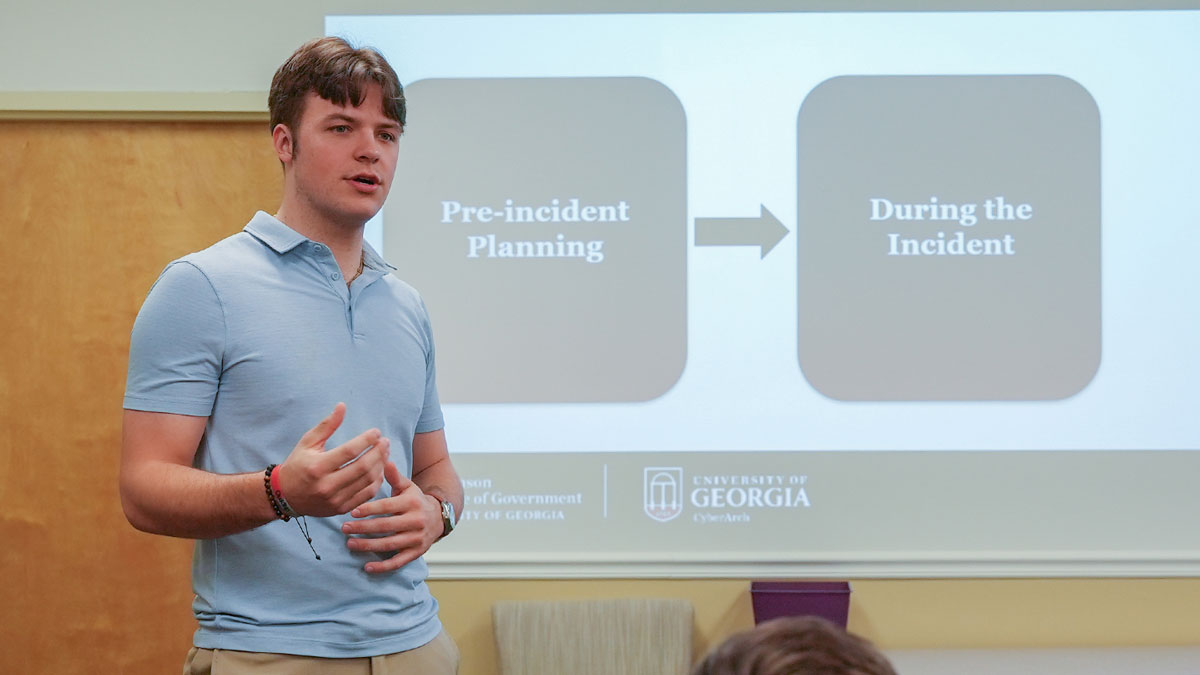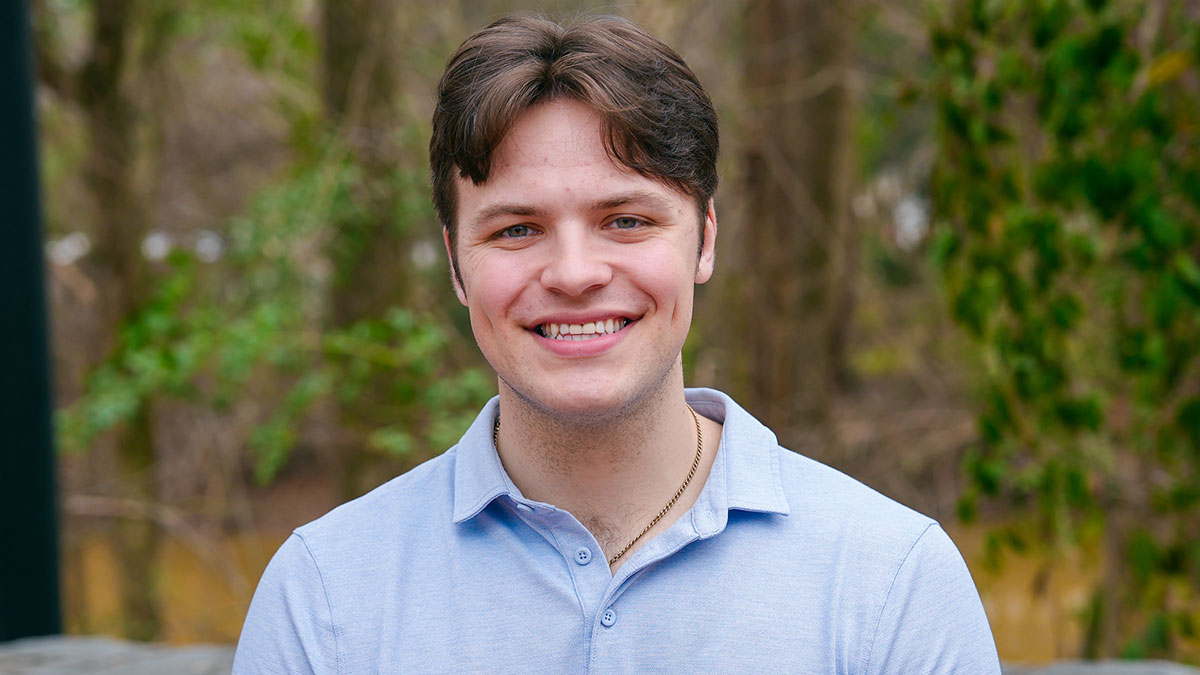Deven Allen, a graduate student from Buford, Georgia, has been with UGA CyberArch since Spring 2022, when student interns first joined the program, and it has helped shape his career path. UGA CyberArch provided the launch pad for how he could apply his academic learning in a real-world context where he was not treated as just a college student, but as a partner.
CyberArch, housed at the Carl Vinson Institute of Government, is one of the ways UGA is working to fortify Georgia’s digital infrastructure and create a resilient cybersecurity environment. Working in teams of four, interns conduct a cybersecurity risk review through a series of assessment questions with partner organizations. The interns then make an on-site visit before creating a final report that includes recommendations to enhance the partner’s cybersecurity posture.
Allen’s interest in cybersecurity was sparked in high school when a computer science teacher recognized his potential and natural talent in utilizing technology. Initially, he was considering engineering, Allen decided to pursue a major in computer science after learning more about cybersecurity from his teacher.
“When she explained that cybersecurity was an expanding field with a lot of demand, it clicked for me. That was the moment I knew this was the path I wanted to pursue,” Allen says.
While Allen was working toward his undergraduate degree in computer science, UGA launched its cybersecurity and privacy master’s degree program. He was intrigued.
“I always had an interest in protection, and cybersecurity felt like the perfect blend of my technical background and desire to safeguard information,” he says.
Allen decided to utilize the Double Dawgs program and pursue his master’s degree at UGA. The program enables students to obtain both a bachelor’s degree and a master’s degree in an accelerated time frame. The decision led Allen to CyberArch.

Photo by Sara Ingram
In late December 2021, Allen received an email that CyberArch was looking for interns, and he immediately responded. He secured an interview and was told the program was in its pilot stages and that the internship would be unpaid. Allen wasn’t going to pass up the opportunity. He was eager to gain experience and learn more about cybersecurity.
“I wasn’t focused on the money; I was motivated by the meaningful work. I wanted to work on projects that were real outside of schoolwork and to do something that would make an impact,” Allen says.
“Cybersecurity is important in everything, no matter your career,” Allen says. “Everything is connected to technology, and all technology is affected by cybersecurity. UGA CyberArch helps you learn the basics, and the work you put into it directly correlates to what you learn. CyberArch is a great stepping stone toward a career in cybersecurity, and if you’re not planning on going into cybersecurity, you will be out there learning about public infrastructure and how it works.”
Despite starting with eight unpaid interns, the program grew significantly over the span of three years. In 2023, UGA CyberArch was awarded a $500,000 grant from Google.org, enabling it to employ 30 paid interns. The program, which is part of the Consortium of Cybersecurity Clinics, is now up to 36 interns and two graduate research assistants.
“The increased funding has allowed us to expand into various areas, including secondary projects, conferences, and webinars. Every day, it feels like we are growing,” Allen says.
In May 2022, Allen’s role in the program expanded after taking on a team lead role. His new responsibilities include coordinating with partner organizations, leading on-site visits, and guiding his interns in developing comprehensive cybersecurity reports. This past August, Allen was recognized as one of two inaugural CyberArch Fellows, as his role expanded to be a mentor to those new to the program.
One of Allen’s favorite opportunities and defining moments as a team lead was presenting at the K12 SIX National K-12 Cybersecurity Leadership Conference this past February in Savannah. He also led the effort to develop and submit another conference presentation this fall, which has been accepted for a cyber summit at Texas A&M in April.
“Our presentation in Savannah focused on preparing for an incident, managing it during its occurrence and addressing it afterward, all tailored to the K-12 education system,” said Allen. “I gained such valuable insights from the research and from the collaboration with my team on this project. I think I’m becoming quite addicted to public speaking now.”
Throughout his three-year journey in the CyberArch program, Allen has gained confidence and leadership skills and is passionate about empowering his team to reach new heights. As he looks to graduation, he is poised to make a lasting impact on the future of digital security in Georgia and beyond. “I want to lead the next generation of interns to achieve more than we ever did,” he says. “This program has helped me grow in so many ways, and I’m thankful I had the chance to grow and change along with it.”
